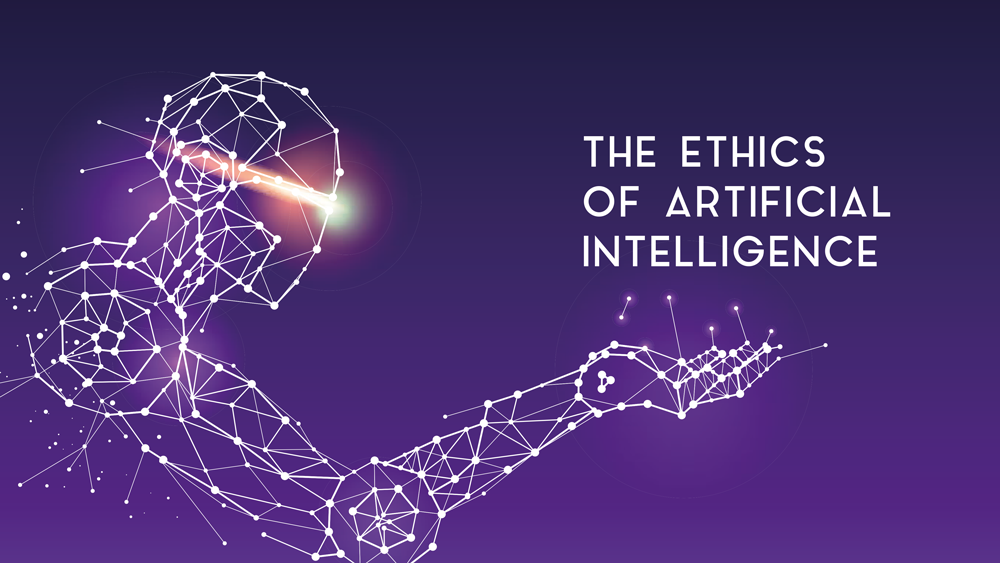10 Crucial Ethical Dilemmas: Unmasking AI’s Shadow Power
Related Articles: 10 Crucial Ethical Dilemmas: Unmasking AI’s Shadow Power
- Amazing Breakthroughs: 5 Key Advances Shaping The Future Of Space Technology
- Amazing Breakthroughs: 5 Revolutionary Green Tech Solutions Transforming Our Planet
- Advancements In Green Tech Solutions
- Revolutionary AI Innovations
- 7 Amazing Smart Cities Revolutionizing Urban Life
Introduction
In this auspicious occasion, we are delighted to delve into the intriguing topic related to 10 Crucial Ethical Dilemmas: Unmasking AI’s Shadow Power. Let’s weave interesting information and offer fresh perspectives to the readers.
Table of Content
10 Crucial Ethical Dilemmas: Unmasking AI’s Shadow Power

Artificial intelligence (AI) is rapidly transforming our world, promising unprecedented advancements in various sectors, from healthcare and finance to transportation and entertainment. However, this powerful technology also presents a plethora of ethical concerns that demand urgent attention and thoughtful consideration. Failing to address these issues proactively risks unleashing unintended consequences with potentially catastrophic societal impacts. This article delves into ten crucial ethical dilemmas inherent in the development and deployment of AI, highlighting the urgent need for robust ethical frameworks and regulations.
1. Bias and Discrimination: One of the most pressing ethical concerns surrounding AI is the perpetuation and amplification of existing societal biases. AI systems are trained on vast datasets, and if these datasets reflect existing societal biases related to race, gender, religion, or socioeconomic status, the AI system will inevitably learn and reproduce these biases in its outputs. This can lead to discriminatory outcomes in areas like loan applications, hiring processes, criminal justice, and even healthcare. For example, facial recognition systems have been shown to be significantly less accurate in identifying individuals with darker skin tones, leading to potential misidentification and wrongful arrests. Mitigating this requires careful curation of training data, algorithmic auditing, and the development of techniques to detect and correct biases within AI systems. Furthermore, a focus on diverse and representative teams developing AI is crucial to ensure a broader perspective and reduce the likelihood of biased outcomes.
2. Privacy and Surveillance: The increasing use of AI-powered surveillance technologies raises serious concerns about privacy violations. Facial recognition, predictive policing algorithms, and data tracking technologies can be used to monitor individuals’ movements and activities without their knowledge or consent. This raises questions about the balance between security and individual liberty, and the potential for misuse of such technologies by authoritarian regimes or corporations. The lack of transparency in how these systems operate further exacerbates these concerns. Strong data protection regulations, informed consent mechanisms, and robust oversight are essential to prevent the erosion of privacy in the age of AI.
3. Job Displacement and Economic Inequality: AI-driven automation has the potential to displace workers across numerous industries, exacerbating existing economic inequalities. While some argue that AI will create new jobs, the transition may be difficult for many workers who lack the skills needed for the new roles. Addressing this requires proactive measures such as retraining programs, social safety nets, and policies that support a just transition to an AI-driven economy. Furthermore, careful consideration should be given to the distribution of the economic benefits generated by AI, ensuring that the gains are shared equitably rather than concentrated in the hands of a few.
4. Accountability and Transparency: Determining accountability when AI systems make errors or cause harm is a significant challenge. The complexity of many AI systems, particularly deep learning models, makes it difficult to understand their decision-making processes. This "black box" nature of AI makes it difficult to identify the source of errors or biases, and to hold individuals or organizations accountable for the consequences. Increased transparency in AI algorithms, explainable AI (XAI) techniques, and clear lines of responsibility are crucial to address this issue.
5. Autonomous Weapons Systems: The development of lethal autonomous weapons systems (LAWS), also known as "killer robots," raises profound ethical concerns. These weapons systems have the potential to make life-or-death decisions without human intervention, raising questions about accountability, the potential for unintended escalation, and the dehumanization of warfare. Many experts and organizations are calling for a preemptive ban on LAWS to prevent a dangerous arms race and mitigate the risks associated with their deployment.
6. Manipulation and Misinformation: AI can be used to create sophisticated forms of misinformation and propaganda, including deepfakes – realistic but fake videos and audio recordings. These technologies can be used to manipulate public opinion, spread disinformation, and undermine democratic processes. Combating this requires developing effective methods for detecting and countering AI-generated misinformation, as well as promoting media literacy and critical thinking skills.
7. Algorithmic Power and Control: The increasing reliance on AI systems in decision-making processes raises concerns about the concentration of power and control. When AI systems are used to make decisions that affect individuals’ lives, there is a risk that those decisions will be made without sufficient human oversight or accountability. This raises questions about the fairness, transparency, and legitimacy of these decisions. Safeguards are needed to ensure that human beings retain ultimate control over AI systems and that AI is used to augment, not replace, human judgment.
8. Access and Equity: The benefits of AI are not evenly distributed. Access to AI technologies and the expertise to develop and deploy them is often concentrated in wealthy countries and corporations. This creates a digital divide that exacerbates existing inequalities. Efforts are needed to promote equitable access to AI technologies and ensure that the benefits of AI are shared broadly across society.
9. The Impact on Human Relationships: The increasing integration of AI into our lives raises questions about the nature of human relationships. The potential for AI companions and virtual assistants to replace human interaction raises concerns about social isolation and the erosion of human connection. A careful consideration of the potential impacts of AI on human relationships and social structures is necessary.
10. Existential Risks: While often viewed as science fiction, the potential for advanced AI to pose an existential risk to humanity is a serious concern for some experts. The development of superintelligent AI that surpasses human intelligence raises the possibility of unintended consequences, including the loss of human control over AI systems. Careful research and proactive safety measures are necessary to mitigate these risks.
Conclusion:
The ethical concerns surrounding AI are complex and multifaceted. Addressing them requires a multi-stakeholder approach involving researchers, policymakers, industry leaders, and the public. The development of robust ethical frameworks, regulations, and standards is crucial to ensure that AI is developed and used responsibly, promoting human well-being and societal progress while mitigating the potential risks. Open dialogue, transparency, and collaboration are essential to navigate the challenges and harness the immense potential of AI for the benefit of all humanity. Ignoring these ethical considerations is not an option; the future of our society depends on our ability to address them proactively and thoughtfully.


Closure
Thus, we hope this article has provided valuable insights into 10 Crucial Ethical Dilemmas: Unmasking AI’s Shadow Power. We appreciate your attention to our article. See you in our next article!
google.com








